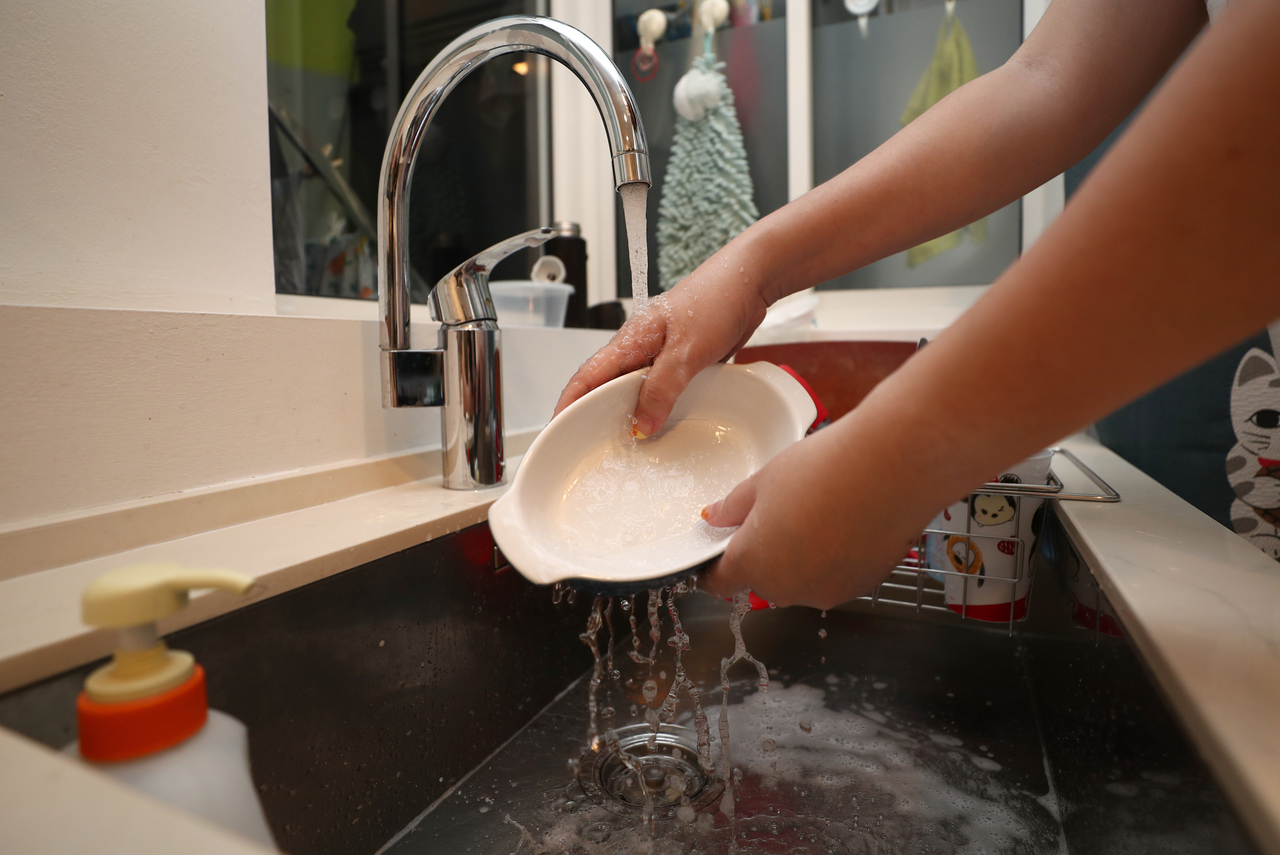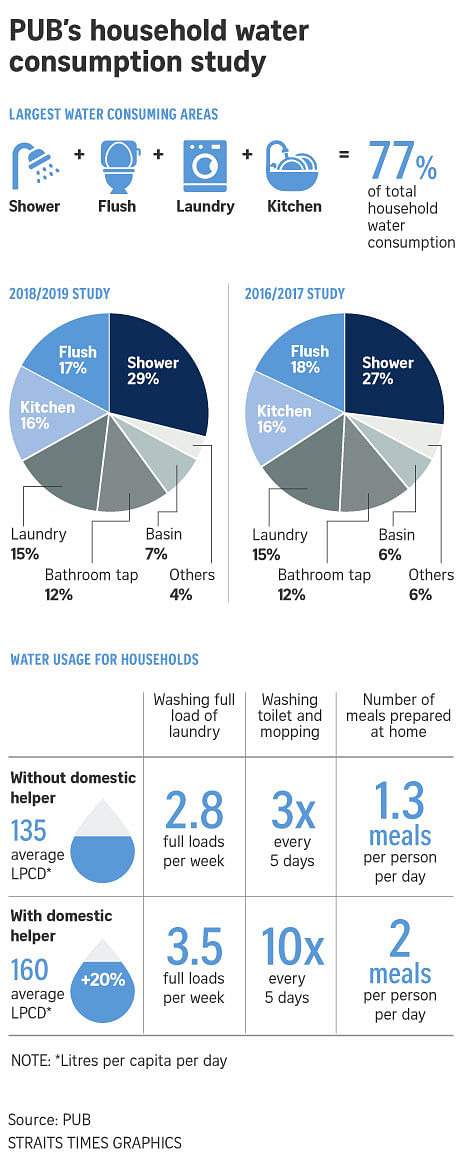Households with maids use 20 per cent more water: PUB survey
Sign up now: Get ST's newsletters delivered to your inbox

On average, the daily per capita consumption of such homes is 160 litres, while that of homes without a maid is 135 litres.
ST PHOTO: BENJAMIN SEETOR
SINGAPORE - Households with maids use 20 per cent more water than those without, a survey by national water agency PUB has found.
On average, the daily per capita consumption of such homes is 160 litres, while that of homes without a maid is 135 litres.
The reason for the higher water consumption could be that washing and cooking activities are done more often in homes with maids, PUB said on Monday (March 9).
Still, the findings, based on 400 households surveyed between September 2018 and March 2019, show consumption is declining when compared with the previous period.
Between September 2016 and April 2017, the corresponding daily per capita consumption are 164 litres and 142 litres.
The latest poll, in which around 15 per cent of the households have maids, was released alongside the launch of the agency's annual water conservation campaign on Monday.
The new survey also found that showering, flushing, kitchen activities and laundry remain the biggest water guzzlers, forming 77 per cent of total water use in a home.
But on average, the daily per capita consumption of households has dropped from 148 litres in 2016 to 141 litres in 2019, the PUB said.
Its goal is to reduce it to 130 litres by 2030.
Greater effort can be made to raise awareness of efficient water use in households, especially among domestic helpers, Mr Seah Seng Choon, president of the Foreign Domestic Worker Association for Social Support and Training (Fast), told The Straits Times.
With about 255,000 maids working in more than 200,000 Singapore homes, the survey results highlight the crucial role they play in saving water, he added.

Maids may not be trained to save water as their main role is to get the cleaning and cooking job done, he noted. Also, cleaning is likely to be done more often in homes with maids.
"Fast has a module in our Onboarding and Integration Programme to teach new domestic helpers water-saving habits. We have worked with PUB to educate more than 3,000 domestic helpers since the programme's launch in 2017," he said.
Maids can be sent for the programme by their employers or enrolled in it by their employment agencies.
"We have also trained and appointed 30 water ambassadors among our domestic helper members to spread the good habits of water saving," he added.
MP Lee Bee Wah, chairman of the Government Parliamentary Committee for the Environment and Water Resources, said: "We should incorporate water saving into the training of domestic helpers before they get employed, and also reach out to existing domestic helpers in their own languages."
One employer gave her maid an incentive to save water. Plant safety manager Gloria Ng, 46, said: "I let her see the utilities bill size and told her she gets to keep any money saved from the monthly water bill."
Other good practices include washing dishes, food items, toilets and pets with a basin or pail of water instead of running water.
But 94 per cent of homes wash their dishes under a running tap.
Similarly, 66 per cent use running water to wash the toilet and 41.5 per cent, when cleaning their pets. Half of the households surveyed also wash their food items under a running tap.
"There is potential for households to use water more efficiently when doing their daily chores, simply by not letting water run needlessly from the tap or the hose," said PUB's director of water supply (network) department Ridzuan Ismail.
This year's water conservation campaign has a new TV commercial, launched last Wednesday, that juxtaposes the water challenges Singapore faced in its early years - water rationing, frequent flooding, polluted rivers and poor sanitation - against today's conveniences, such as modern sanitation, clean rivers, an extensive drainage system and uninterrupted drinking water supply.
The #GoBlue4SG movement, a nationwide initiative to support water conservation through such simple acts as wearing blue and selling blue-coloured products to tie in with water conservation, will also return in March, with 38 retailers and businesses offering different discounts and deals.


